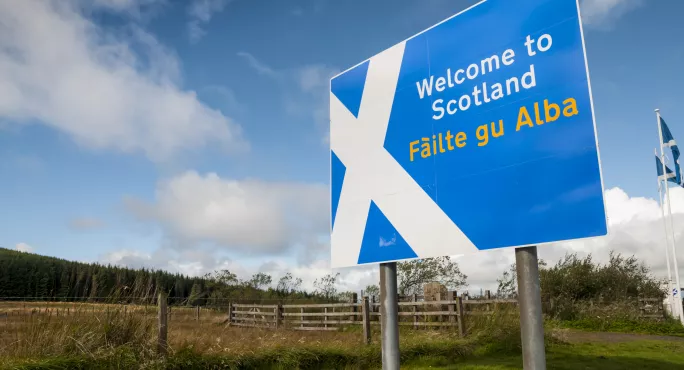Scotland’s education secretary has appealed for ideas to lift the Gaelic language from its “fragile” position.
Fewer than one in 50 Scots can speak, write and understand Gaelic, census data shows, with education secretary Shirley-Anne Somerville saying that for the language to have a “sustainable future” there has to be a “concerted effort” from the Scottish government and others.
The Gaelic Language Plan for 2018 to 2023 sets out that the language should be “used more often, by more people and in a wider range of situations”.
Gaelic: Meet the refugee pupil excelling in Gaelic at school
Research: How a Gaelic education brings bilingual benefits
Future of Gaelic: Gaelic education detractors ‘like bad 1970s comedians’
News: Gaelic becomes default language for island pupils
Opinion: Why more ASN teachers are needed if Gaelic is to thrive
The Scottish government has now launched a consultation on that plan, appealing for people to have their say on what they want to see done.
‘A concerted effort’ to bolster Gaelic language
The consultation paper acknowledges that “the position of Gaelic remains fragile”.
It adds that if the language is to have a sustainable future in Scotland “there needs to be a concerted effort on the part of government, the public sector, the private sector, community bodies and individual speakers” to promote the language and enable it to be used in more settings.
Data from the 2011 census, the most recent year available, showed that 87,056 people - 1.7 per cent of the population aged 3 and over - could speak, write or understand Gaelic.
That represented a drop from 92,000 people - or 1.9 per cent of the population aged 3 and over - who could do so in 2001.
Launching the consultation, Ms Somerville said: “The Gaelic language is a vital part of Scotland’s cultural identity and we are determined to continue to support the status and long-term future of Gaelic and maximise the opportunities to use, learn and promote the language.
“If Gaelic is to have a sustainable future, there needs to be a concerted effort on the part of government and partners to promote and enable the use of the language.”
Ms Somerville added: “The draft version of our Gaelic Language Plan aims to support this by building on the commitments in place since the publication of our first plan in 2010.
“We welcome all views and I look forward to considering all responses to our consultation.”
To submit your views on the Gaelic Language Plan, click here.




